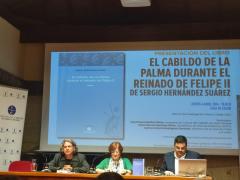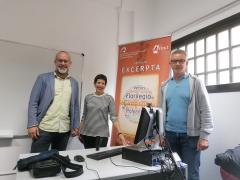Conferencia sobre María Lejárraga- miércoles 10 de abril a las 19:00 h - Fundación Juan Negrín
El miércoles día 10 de abril a las 19:00 h, como parte de la programación de actividades de la exposición “Ni a tontas, ni a locas”. Mujeres singulares en los entornos de Negrín, tendremos la oportunidad de escuchar a Juan Aguilera Sastre en la conferencia DE LA LITERATURA Y EL FEMINISMO A LA POLÍTICA: MARÍA LEJÁRRAGA Y JUAN NEGRÍN. Juan Aguilera, doctor en Filología Hispánica por la Universidad de Zaragoza, ha sido profesor asociado de la Universidad de La Rioja. Estudioso de la literatura española de la Edad de Plata, ha profundizado en la figura de María Lejárraga y en otros autores de la literatura del exilio literario de 1939. Antes de la conferencia, se ofrecerá a las 18:00 h una visita guiada sobre la exposición “Ni a tontas, ni a locas”. Mujeres singulares en los entornos de Negrín.












